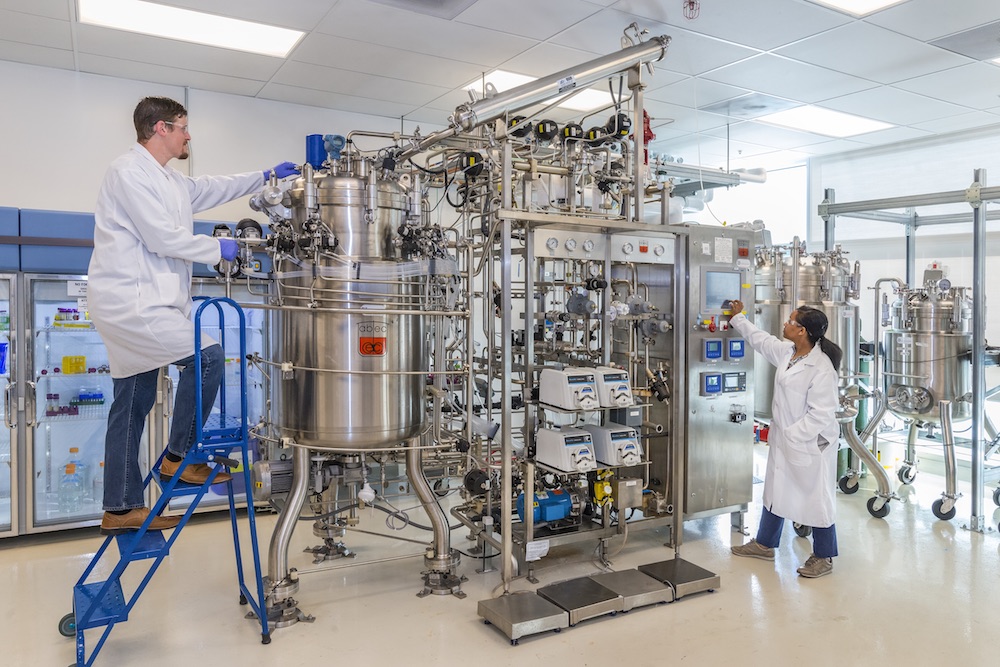
Microvi Biotechnologies, a leading innovator of biocatalytic processes, working with the Advanced Biofuels Process Demonstration Unit (ABPDU) at the Lawrence Berkeley National Laboratory (Berkeley Lab), has demonstrated breakthrough improvements to biological ethanol production.
Microvi’s technology uses engineered biocatalyst composites which have been synthetically designed to 1) alleviate ethanol toxicity on the cells which produce it, 2) induce higher feedstock conversion yields and efficiencies, and 3) enable robust and repeatable continuous fermentation. The technology, now commercially available, is also designed to limit microbial contaminants in the production process.

In the first phase of the Microvi-ABPDU collaboration, Microvi’s biocatalytic technology was compared with a conventional yeast ethanol production (control) system run in parallel, at bench scale, at the ABPDU. The investigation showed that even under non-optimized conditions, the Microvi technology achieved higher performance values than the control system:
- Bio-ethanol productivity nearly doubled (8.15 g L-1 h-1 vs. 3.95 g L-1 h-1).
- Feedstock conversion yields approached theoretical maximum (99.8% vs. 77.4%).
- Achievement of higher titer (24.05% vs 18.39% ethanol v/v).
- Minimal production of acetic acid, an undesirable side product seen in some ethanol fermentations due to contamination or metabolic stress.
“These results validate the revolutionary performance achievable with Microvi biocatalytic processes,” said Fatemeh Shirazi, CEO of Microvi. “This validation study, like other ongoing third-party validations of various Microvi technologies, show the promise of Microvi’s biomimetic approach—design inspired by nature—to enhance bioconversion processes.”
A preliminary techno-economic evaluation by Microvi indicates that the combined impact of higher productivity, increased titers, and near complete conversion of feedstock to ethanol represents a strong case for cost reduction by ethanol and bio-based chemical producers.
“The type of technology represented by this new biocatalytic process could play a key role in improving ethanol production economics and scaling using traditional first generation feedstocks as well as leveraging second generation non-food energy crops and agricultural residue, ” said Todd Pray, program head at the ABPDU. “We look forward to further optimization and scale-up work with Microvi in future phases of our collaboration, including validation using lignocellulosic biomass feedstocks.”